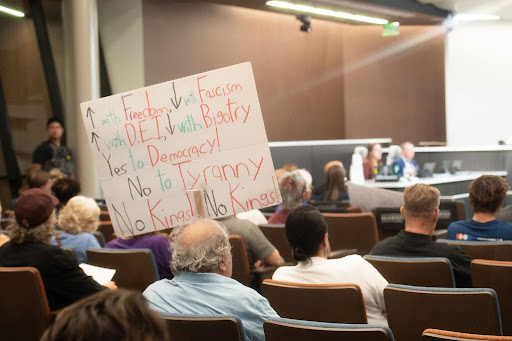McCain, Obama offer different plans for economy
Elizabeth Taggart
Presidential candidates Barack Obama and John McCain have both specifically mentioned college students in their proposed economic policies.Obama plans to establish an American Opportunity Tax Credit that would make the first $4000 of tuition free for most students, which he says is two-thirds of the average cost of one year at a public university.
The tax credit would be universal and fully refundable to help low income families and would be made available at the time of enrollment when tuition is due instead of when tax returns are filed.
McCain, on the other hand, intends to set up a Student Loan Continuity Plan.
In case credit problems disrupt student loans, McCain calls on the federal government and the 50 governors to anticipate loan problems and expand the lender-of-last-resort capacity for each state’s guarantee agency.
A large part of Obama’s policy concerns credit cards and protecting consumers, including students, from unfair practices by creating a credit card bill of rights.
Obama also wants to simplify the tax system by making tax returns doable in less time with less stress with the added benefit of saving people the money they would have paid to have a professional do the return.
McCain plans to have a gas tax holiday during the summer and suspend the federal tax, which is currently 54 cents, between Memorial Day and Labor Day.
Both candidates have plans concerning the housing situation, mortgage fraud reform and controlling government spending.
Both also say that one way to help the economy is by investing in green technology and domestic manufacturing.
McCain’s energy policy, the Lexington Project, would increase offshore drilling, build new nuclear power plants, research clean coal technologies and encourage the market for renewable sources like hydro, wind, and solar with tax credits.
The Arizona senator also wants to work on making better battery powered cars and increasing the energy efficiency in government buildings.
Obama’s plan calls for more job-training programs and youth programs in clean technologies and increasing the renewable energy sector to create more jobs.
In addition to possible future economic policies, college students could be affected by the College Opportunity and Affordability Act of 2008, recently passed by Congress.
The act is aimed at containing the internal costs of colleges and universities as well as what they in turn charge students for tuition.
The act would develop a tuition calculator published on certain websites to help families understand the cost of attending college, including anticipating tuition increases.
It also requires schools to report their annual changes in tuition as well as what percentage of their endowment was spent each year on cost-containment.
The top five percent of schools with the highest and lowest tuition and the highest percentage increases in tuition and fees over a three year period would be published on the College Navigator website.
One amendment in the act allows community college students to have $10 forgiven on their student loans for every hour spent mentoring an at-risk child.
The act was presented to President Bush on Aug. 6, 2008 and was signed into law by the president on Aug. 14.
Detailed economic policies for McCain and Obama can be downloaded from their Web sites.









